When selecting a pet bird, beginners should look for birds that are easy to care for, friendly, and adaptable to new environments. Here’s a list of the best pet birds for those new to bird ownership, based on temperament, ease of care, and overall enjoyment as companions.
1. Budgerigar (Budgie) Can Be A Best Pet Birds
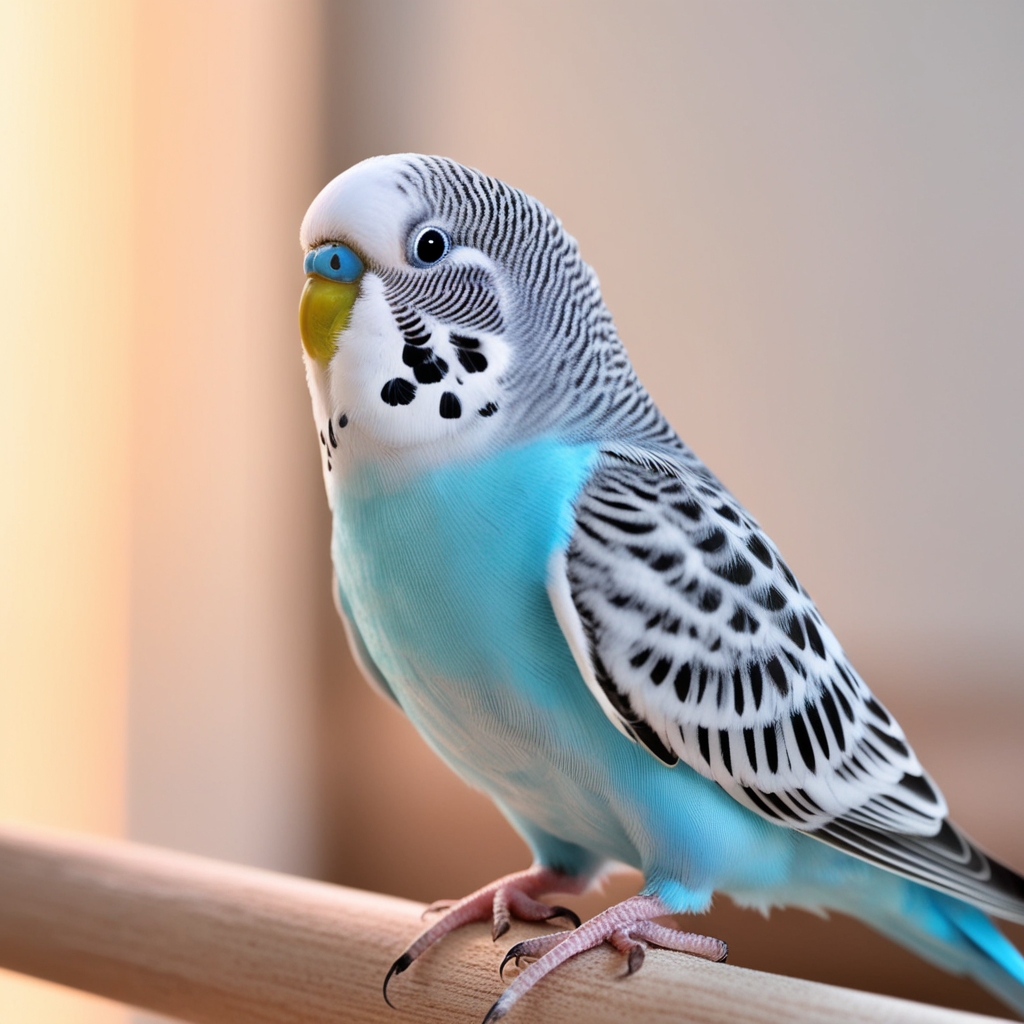
Budgerigars, often known simply as “budgies,” are among the most popular pet birds worldwide, especially for beginners. These small, colorful, and social birds have won the hearts of bird enthusiasts for their playful personalities and ease of care.
- Size: Small (7 inches)
- Personality: Friendly, social, and gentle
Why Budgies Is A Best Pet Birds for Beginners
1. Easy to Care For
- Budgies are relatively low-maintenance compared to many other pet birds.
- They require a balanced diet, a clean cage, fresh water, and regular interaction to stay healthy and happy.
2. Small and Adaptable
- With a size of about 7 inches, budgies don’t need large cages, making them suitable for small living spaces.
- They adapt well to different environments, making them versatile for homes or apartments.
3. Affectionate and Social
- Budgies are known for being friendly and social. They enjoy interacting with people and other budgies.
- When socialized properly, they form strong bonds with their owners and can be very affectionate.
4. Intelligent and Trainable
- Budgies are highly intelligent and can learn a variety of tricks.
- Many budgies can mimic sounds and words, which can be a fun and rewarding part of training.
5. Colorful and Attractive
- Budgies come in a variety of beautiful colors, ranging from green, yellow, blue, to white, making them visually appealing.
6. Long Lifespan
- With proper care, budgies can live 5-10 years or even longer, making them a long-term companion for a beginner pet birds owner.
7. Affordable and Widely Available
- Budgies are usually affordable and easy to find at pet stores or breeders, making them an accessible option for first-time owners.
Basic Care Tips for Budgies
- Diet: Provide a balanced diet with seeds, pellets, fresh fruits, and vegetables.
- Housing: Use a spacious cage with perches, toys, and clean bedding.
- Exercise: Let them fly in a safe, enclosed area outside of the cage regularly.
- Social Interaction: Spend time with your budgie daily for socialization and mental stimulation.
- Veterinary Care: Take your budgie to a vet regularly to check on its health.
Budgerigars are fantastic first-time pet birds due to their friendly nature, adaptability, and ease of care. They’re small but packed with personality, making them a joy to have as companions. With a little time and attention, budgies can be a rewarding choice for beginner bird owners.c
2. Cockatiel Can Be A Best Pet Birds
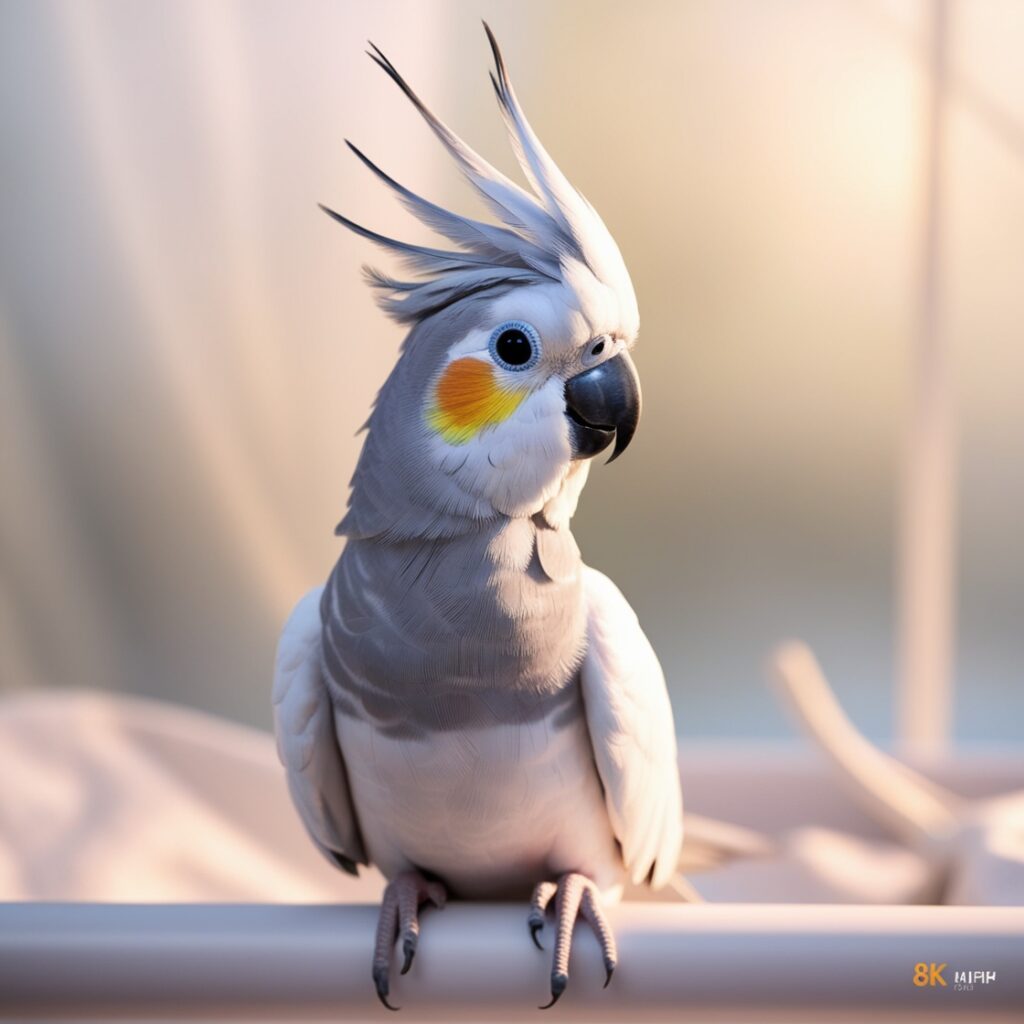
Cockatiels are among the most popular pet birds, especially for beginners. These small, affectionate parrots are known for their charming personalities, expressive crests, and friendly disposition. Here’s why cockatiels make such great companions for those new to bird ownership.
- Size: Medium (12 inches)
- Personality: Affectionate, gentle, and curious
Why Cockatiels are Ideal for Beginners
1. Affectionate and Friendly
- Cockatiels are social pet birds that often form strong bonds with their owners.
- They enjoy being handled and petted, making them one of the most affectionate bird species.
2. Easygoing Temperament
- Generally gentle and calm, cockatiels have an easygoing nature that’s well-suited for beginners.
- They rarely bite and are easy to handle, which is ideal for those learning how to care for a bird.
3. Expressive and Communicative
- With their unique head crest, cockatiels are very expressive, showing their emotions through their crest’s position.
- They communicate with whistling, chirping, and may even mimic sounds or simple phrases, adding to their charm.
4. Best Pet Birds for Low Noise Level
- Compared to larger parrots, cockatiels are relatively quiet, making them suitable for apartment living.
- They enjoy whistling tunes but are not as loud or demanding as some other bird species.
5. Manageable Size
- Cockatiels are small to medium-sized birds, typically around 12 inches, making them easy to house.
- They need a modest-sized cage and space to explore outside of the cage occasionally.
6. Intelligent and Trainable
- Cockatiels are smart and can learn tricks, simple commands, and even respond to their names.
- They enjoy interactive play, which can strengthen their bond with owners and provide mental stimulation.
7. Best Pet Birds for Low Maintenance
- Cockatiels are not as high-maintenance as larger parrots. They need a balanced diet, a clean cage, fresh water, and daily interaction.
- Their care routine is straightforward, making them manageable for those new to pet birds.
Essential Cockatiel Care Tips
- Diet: Provide a mix of pellets, seeds, fresh fruits, and vegetables.
- Cage: Choose a spacious cage with perches, toys, and a clean bottom lining.
- Exercise: Allow out-of-cage time in a safe, enclosed area to keep them active and healthy.
- Social Interaction: Spend daily quality time with your cockatiel to keep them happy and prevent loneliness.
- Health Checks: Regular vet visits and attention to any changes in behavior or appearance are essential for long-term health.
Cockatiels are friendly, easygoing, and affectionate, making them perfect for beginners who want a loyal, interactive companion. With a little time, attention, and proper care, cockatiels can bring years of joy, companionship, and entertainmeBeginners
3. Canary Can Be A Best Pet Birds
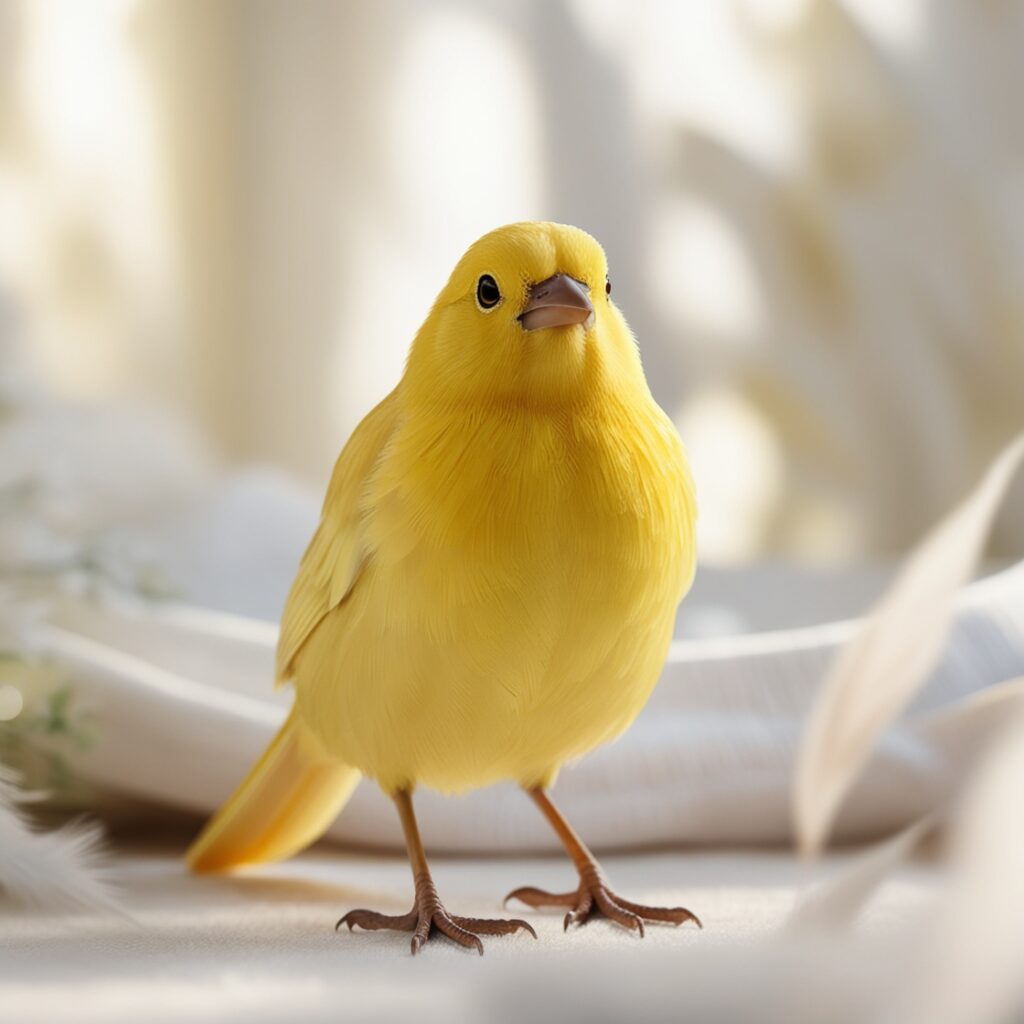
Canaries are charming, vibrant birds known for their beautiful songs and cheerful disposition. As low-maintenance pets, they are an excellent choice for beginner bird owners who prefer a pet that is easy to care for and doesn’t require frequent handling.
- Size: Small (5–6 inches)
- Personality: Independent and lively
Why Canaries Make A Best Pet Birds for Beginners
1. Low Maintenance
- Canaries are relatively low-maintenance, requiring minimal daily interaction and simple care routines.
- They thrive with a clean cage, fresh water, and a balanced diet, making them easy to manage.
2. Best Pet Birds for Beautiful Singing
- Male canaries are famous for their melodic singing, which adds a pleasant sound to any home.
- Their song is soft and enjoyable, unlike the loud calls of some parrots, making them suitable for apartments or quiet environments.
3. Independent Nature
- Canaries are more independent than many other pet birds and don’t require handling or constant attention.
- They enjoy observing and interacting from a distance, making them ideal for busy owners.
4. Compact and Colorful
- These small birds come in a variety of colors, including yellow, orange, white, and red, making them visually appealing.
- Canaries don’t need a large cage and can comfortably live in a modest space.
5. Clean and Tidy
- Canaries are naturally clean birds and tend to groom themselves regularly.
- They don’t produce as much mess or noise as larger birds, making them a low-impact pet for new bird owners.
6. Best Pet Birds for Long Lifespan
- With proper care, canaries can live between 10-15 years, providing a long-term companionship option for beginners.
- Their simple needs contribute to their overall longevity and health.
Essential Care Tips for Canaries
- Diet: Provide high-quality canary seed mix, pellets, and fresh greens or fruits occasionally.
- Cage: A spacious cage with perches and a few toys for enrichment is ideal.
- Exercise: Canaries enjoy flying, so provide enough space in the cage or allow supervised time outside for exercise.
- Environment: Keep their cage in a quiet, stable environment, away from drafts and direct sunlight.
- Health Checks: Regular checkups with an avian vet help ensure your canary stays healthy.
Canaries are an excellent choice for beginners looking for a beautiful and musical pet birds that doesn’t need much handling. Known for their independence and ease of care, these delightful birds charm with their melodious songs and vibrant presence. With basic daily care and a comfortable cage, canaries can bring years of joy and elegance to any home.
4. Zebra Finch Can Be A Best Pet Birds
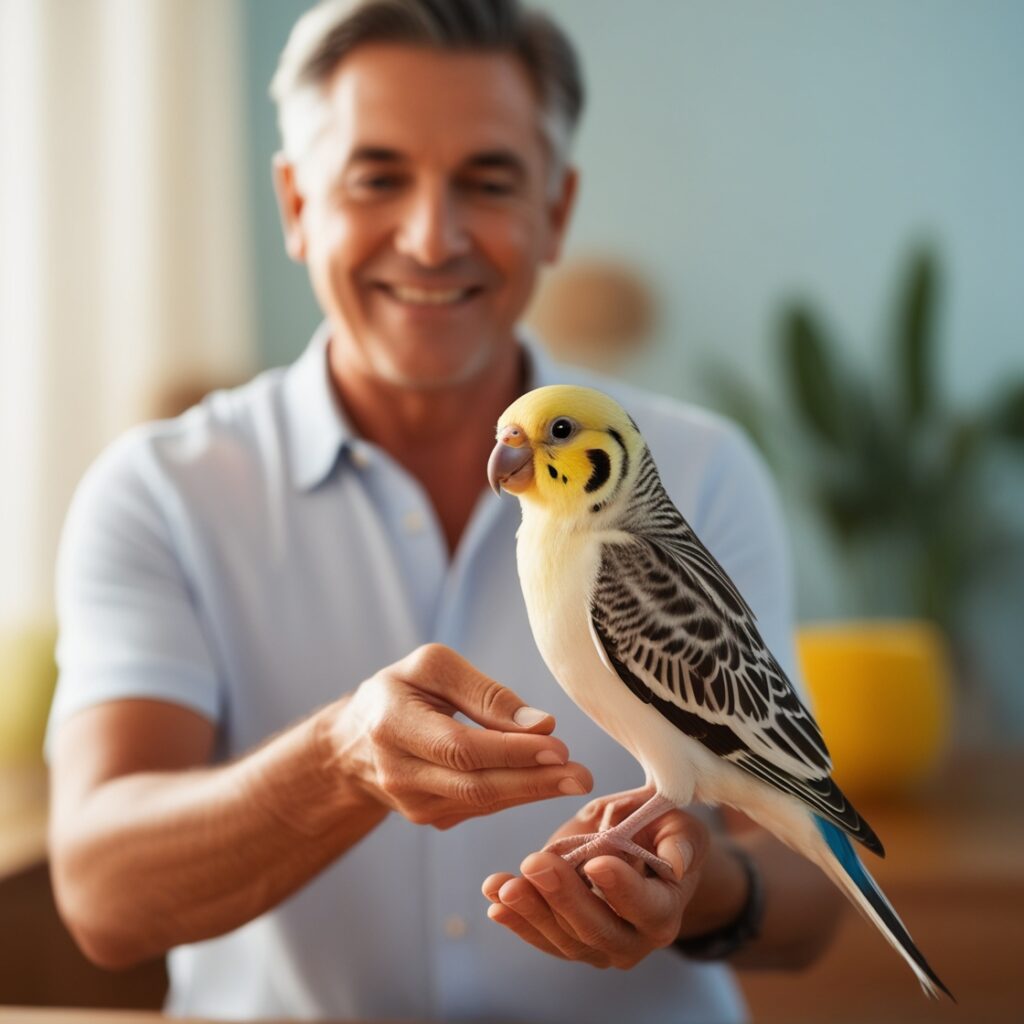
Zebra finches are small, active birds that are perfect for beginners who want a low-maintenance pet with plenty of charm. Known for their cheerful chirping and lively personalities, zebra finches are easy to care for and thrive in pairs or small groups.
- Size: Small (4 inches)
- Personality: Active, cheerful, and entertaining
Why Zebra Finches Is A Best Pet Birds for Beginners
1. Low Maintenance
- Zebra finches are easy to care for, with straightforward feeding and cleaning needs.
- They are content without much handling, making them ideal for busy or first-time bird owners.
2. Best Pet Birds for Social and Playful
- Zebra finches are highly social birds and enjoy the company of their kind. They do best when kept in pairs or small groups.
- Their playful interactions with each other can be fun to watch, providing endless entertainment.
3. Beautiful Colors and Patterns
- Zebra finches have attractive markings, with males displaying striking red-orange beaks and distinctive black and white “zebra” stripes on their chests.
- Their small size and pretty coloring make them visually appealing without requiring a large cage.
4. Soft, Pleasant Chirping
- While not loud, zebra finches chirp softly throughout the day, adding a cheerful sound to the home.
- Their chirping is soothing and not as loud or demanding as some larger birds, making them suitable for apartments.
5. Hardy and Adaptable
- Zebra finches are hardy birds that adapt well to different environments.
- They are less prone to stress compared to some other bird species, making them resilient and easygoing.
6. Best Pet Birds for Affordable and Widely Available
- Zebra finches are usually affordable and available in most pet stores, making them accessible for beginners.
- Their straightforward care needs also mean they are economical to maintain.
Essential Zebra Finch Care Tips
- Diet: Provide a balanced diet with a quality finch seed mix, supplemented with fresh greens and small bits of fruit.
- Cage: A spacious cage with multiple perches and some room to fly is ideal.
- Exercise and Enrichment: Finches are very active and need space to fly within the cage; they also enjoy swings and mirrors for enrichment.
- Companionship: Keep finches in pairs or groups to keep them socially satisfied and prevent loneliness.
- Health: Regularly clean the cage and ensure fresh water and food daily. Watch for signs of illness and schedule checkups with an avian vet.
Zebra finches are an excellent choice for beginners seeking a low-maintenance, sociable, and affordable pet bird. Their lively interactions, cheerful chirps, and beautiful markings make them a delightful addition to any home. With minimal handling needs, zebra finches are ideal for those who want a charming companion without extensive care requirements.
5. Lovebird Can Be A Best Pet Birds
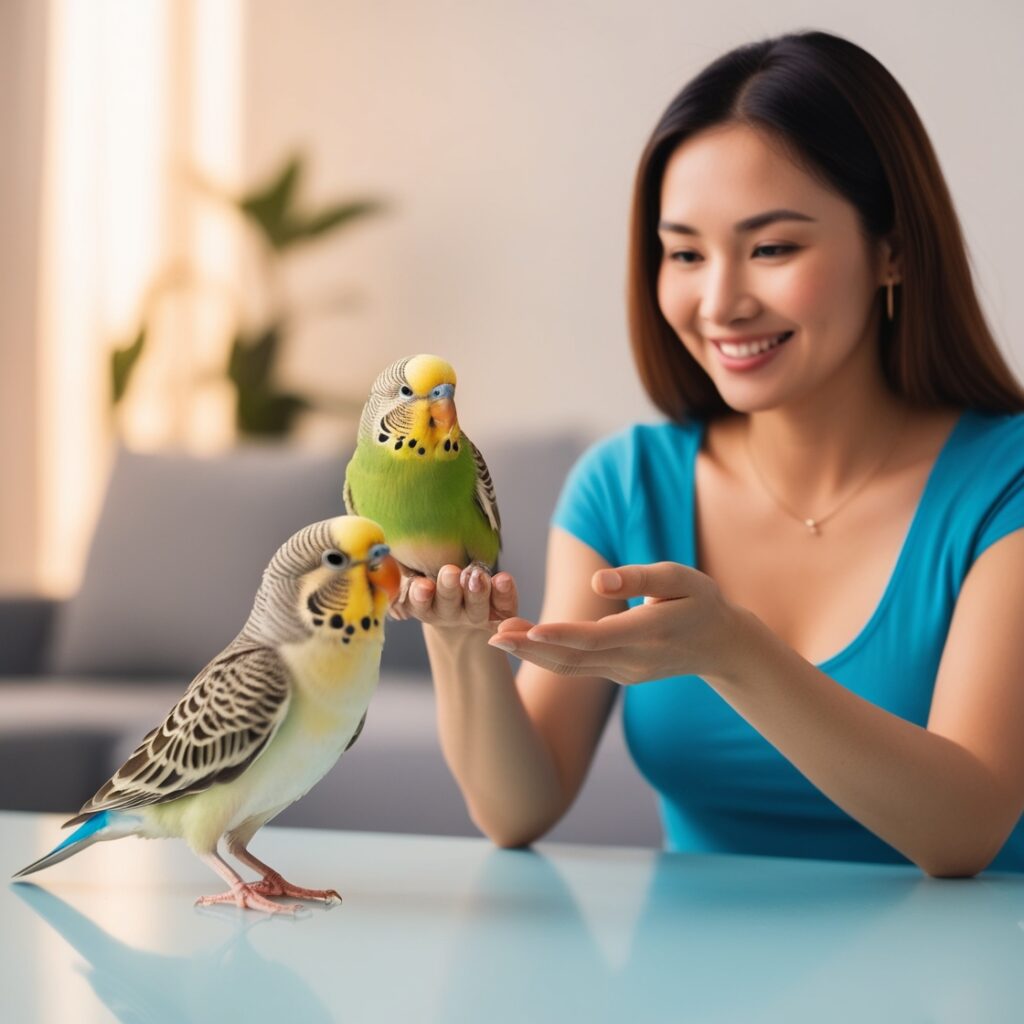
Lovebirds are small, vibrant parrots known for their affectionate nature and close bonds with their companions. With their playful personalities and colorful feathers, lovebirds make an excellent choice for beginners who are ready to provide consistent attention and care.
- Size: Small (6 inches)
- Personality: Affectionate, playful, and lively
Why Lovebirds Is A Best Pet Birds for Beginners
1. Affectionate and Social
- Lovebirds are known for their strong bonding, either with another lovebird or with their human companion if kept alone.
- They enjoy close contact and affection, often showing loyalty and playfulness with their owners.
2. Compact Size
- Lovebirds are small parrots, around 5-7 inches long, making them manageable in terms of space.
- They don’t need large cages, but they do appreciate space to move around and play.
3. Playful and Active
- These birds are lively and curious, often exploring, climbing, and engaging with toys.
- Their playful antics can be highly entertaining, especially if they have a variety of toys and activities in their environment.
4. Colorful and Attractive
- Lovebirds come in a variety of colors, including green, blue, peach, and yellow, which makes them visually striking.
- Their bright feathers add a touch of tropical beauty to any home.
5. Intelligent and Trainable
- Lovebirds are smart and can learn tricks, recognize their owners, and respond to training with patience and positive reinforcement.
- With consistent training, they can learn to step up on your finger and may even mimic sounds.
6. Best Pet Birds for Strong Bonds
- Lovebirds form deep bonds, whether with another lovebird or their human. A single lovebird will need lots of interaction with its owner to stay happy and well-adjusted.
- If kept in pairs, they’ll often be inseparable, providing companionship to each other, especially if owners have limited time to interact.
Essential Lovebird Care Tips
- Diet: Provide a balanced diet of pellets, seeds, and fresh fruits and vegetables for good nutrition.
- Cage: Choose a spacious cage with perches, ladders, and plenty of toys for enrichment.
- Exercise and Enrichment: Lovebirds are active and need daily out-of-cage time in a safe, enclosed area to exercise and explore.
- Social Interaction: Spend time with your lovebird daily for bonding, especially if it’s a solo pet, as they can get lonely.
- Health and Safety: Regular vet visits and cage cleaning help maintain your lovebird’s health. Also, watch out for anything dangerous they could chew on outside the cage, as lovebirds like to explore with their beaks.
Lovebirds are affectionate, colorful, and full of personality, making them a great choice for beginner bird owners who want a lively, interactive pet. Though they require regular interaction and playtime, their companionship and entertaining nature make them a rewarding pet for those ready to give them attention and care. With the right environment and love, a lovebird can bring years of joy and companionship.
6. Parrotlet Can Be A Best Pet Birds
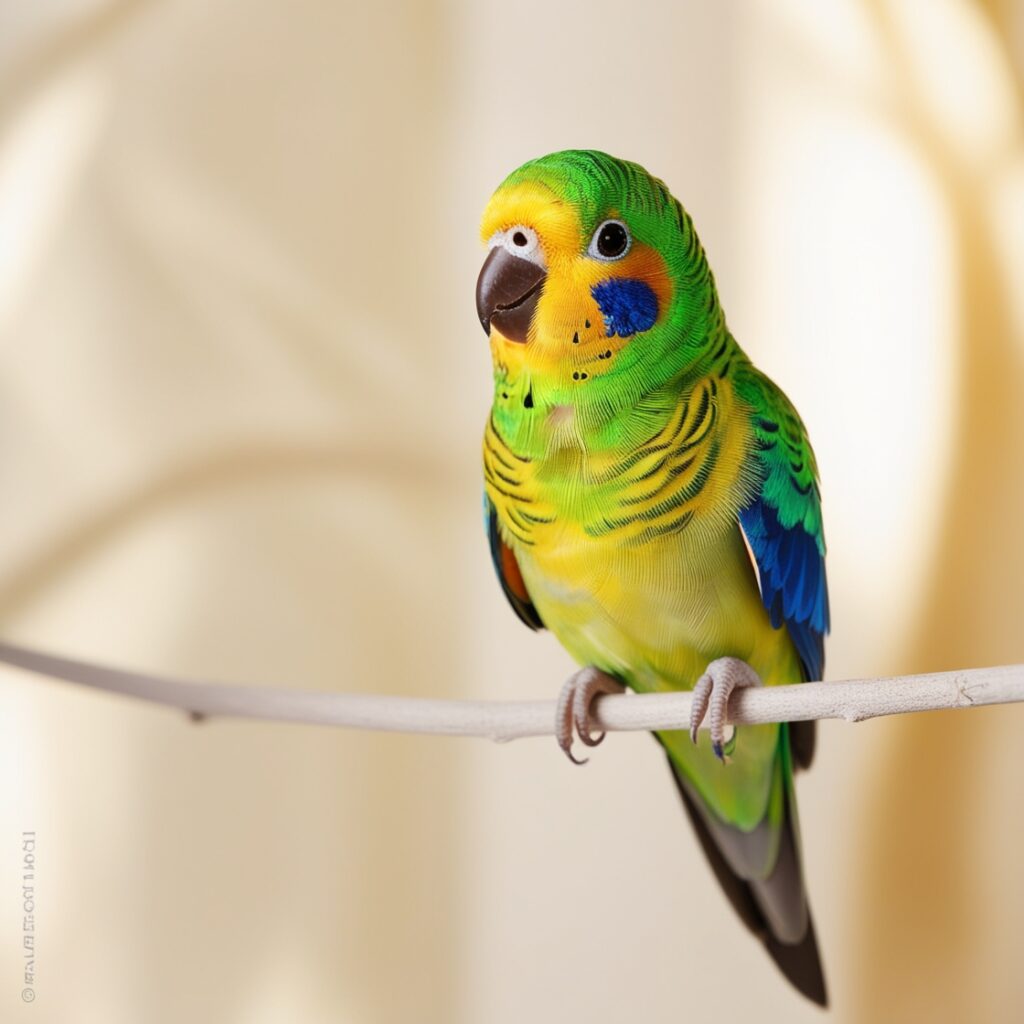
Parrotlets are small, feisty parrots known for their bold personalities and impressive intelligence. Often described as “tiny parrots with big personalities,” parrotlets are perfect for beginners who want a small bird with the characteristics and charm of larger parrots.
- Size: Tiny (4–5 inches)
- Personality: Feisty, affectionate, and curious
Why Parrotlets are Great Pets for Beginners
1. Best Pet Birds for Small and Manageable Size
- Parrotlets are compact birds, typically only 4–5 inches in length, making them ideal for smaller living spaces.
- Despite their small size, they have big personalities and bring the same energy and charm as larger parrot species.
2. Affectionate and Loyal
- Parrotlets can form strong bonds with their owners, showing affection and loyalty when given regular attention.
- With proper handling and socialization, they enjoy spending time with their humans and often become quite attached.
3. Best Pet Birds for Intelligent and Curious
- Parrotlets are highly intelligent and can be trained to do simple tricks, respond to their name, and even learn basic words or sounds.
- Their curiosity and problem-solving skills make them engaging and entertaining pets to interact with.
4. Quiet Compared to Larger Parrots
- Although parrotlets are capable of making noise, they’re much quieter than larger parrots, making them suitable for apartments or homes where noise might be a concern.
- They chirp and chatter, but their voices are generally softer and less disruptive.
5. Playful and Active
- Parrotlets are playful and enjoy climbing, exploring, and interacting with toys. They need plenty of mental and physical stimulation to stay happy and healthy.
- Despite their size, they have an adventurous spirit, making them fun to observe as they explore their surroundings.
6. Independent but Social
- While they are affectionate, parrotlets are also independent and can entertain themselves if given enough toys and stimulation.
- They do well as single pets when they receive enough attention from their owner, though they can also be kept in pairs with proper socialization.
Essential Parrotlet Care Tips
- Diet: Provide a varied diet with high-quality pellets, seeds, fresh vegetables, and occasional fruit treats.
- Cage: Parrotlets need a spacious cage relative to their size, equipped with perches, toys, and areas for climbing.
- Exercise and Enrichment: Allow daily out-of-cage time in a safe area, as parrotlets love to explore and exercise.
- Social Interaction: Spend time with your parrotlet daily, especially if it’s a single pet, to prevent loneliness and maintain a strong bond.
- Health: Regularly clean their cage, keep fresh water available, and monitor for any signs of health issues; regular vet check-ups are also recommended.
Parrotlets are an excellent choice for beginners who want a small, affectionate, and intelligent bird. Their playful nature and strong personalities make them a joy to care for, while their independence and low noise level suit a variety of living spaces. With consistent interaction, mental stimulation, and proper care, parrotlets can be a rewarding and lively addition to any household.
7. Pionus Parrot Can Be A Best Pet Birds
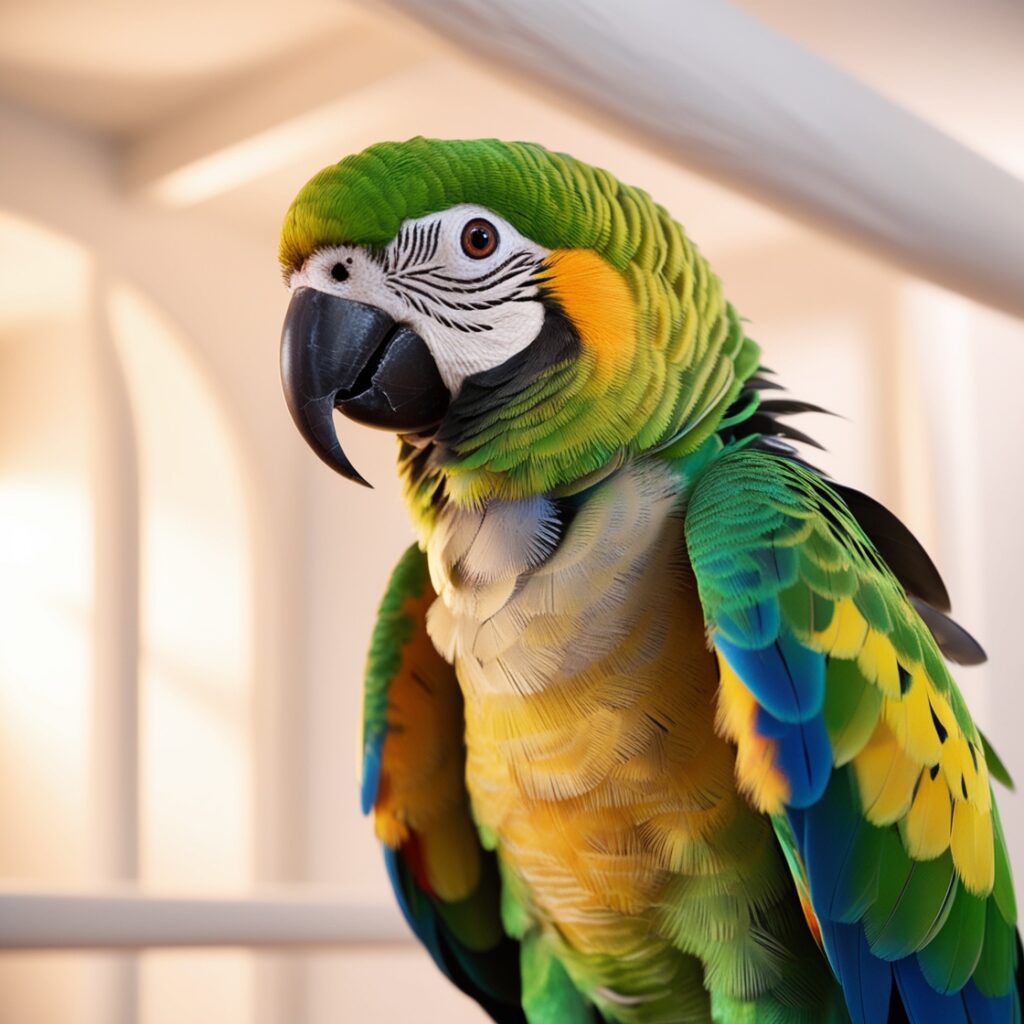
Pionus parrots are medium-sized, quiet, and gentle parrots known for their calm demeanor and friendly nature. These parrots are ideal for beginners who want a parrot with a sweet personality that’s easygoing and less demanding than other parrot species.
- Size: Medium (10–12 inches)
- Personality: Calm, quiet, and friendly
Why Pionus Parrots Is A Best Pet Birds for Beginners
1. Best Pet Birds for Calm and Gentle Disposition
- Pionus parrots are known for their calm, mild-mannered nature, making them suitable for those new to bird ownership.
- They are less prone to aggression and tend to be patient, which is ideal for beginners learning to handle parrots.
2. Quiet Compared to Other Parrots
- Pionus parrots are relatively quiet, especially compared to louder parrot species like macaws or cockatoos.
- They make soft chirps and gentle sounds, which are less likely to disturb neighbors or household members.
3. Affectionate and Social
- Although they can be independent, Pionus parrots form close bonds with their owners and are affectionate when socialized properly.
- They enjoy being near their owners but are generally not as clingy or demanding as some other parrots.
4. Best Pet Birds for Low-Dust Bird
- Pionus parrots are low-dust birds, which can be beneficial for people with mild allergies or sensitivities to bird dander.
- They also require less maintenance for feather care compared to high-dust species like cockatoos or African greys.
5. Best Pet Birds for Intelligent and Trainable
- Pionus parrots are smart and enjoy learning new tricks, games, and routines, which can help strengthen the bond between them and their owners.
- While they are not known for extensive talking ability, some Pionus parrots can mimic simple words and sounds with training.
6. Long Lifespan
- Pionus parrots have a long lifespan, often living between 25 to 40 years with proper care.
- Their longevity makes them a long-term companion for those committed to building a lasting relationship with their pet.
Essential Pionus Parrot Care Tips
- Diet: Feed a balanced diet that includes high-quality pellets, fresh fruits, vegetables, and occasional seeds or nuts.
- Cage: Choose a spacious cage with perches, toys, and ladders; Pionus parrots enjoy climbing and exploring.
- Exercise and Enrichment: These parrots need daily out-of-cage time and a variety of toys to keep them mentally and physically active.
- Socialization: Spend time interacting daily with your Pionus to reinforce social skills and keep them happy.
- Health and Hygiene: Maintain a clean cage and keep fresh water available; regular vet checkups are important for a healthy, long life.
Pionus parrots are an ideal choice for beginners seeking a parrot with a calm, friendly, and low-maintenance personality. They are affectionate without being overly demanding, quiet without being silent, and intelligent without being overly energetic. With the right care, attention, and enrichment, a Pionus parrot can be a rewarding, loyal companion for many years.
8. Green-Cheeked Conure Can Be A Best Pet Birds
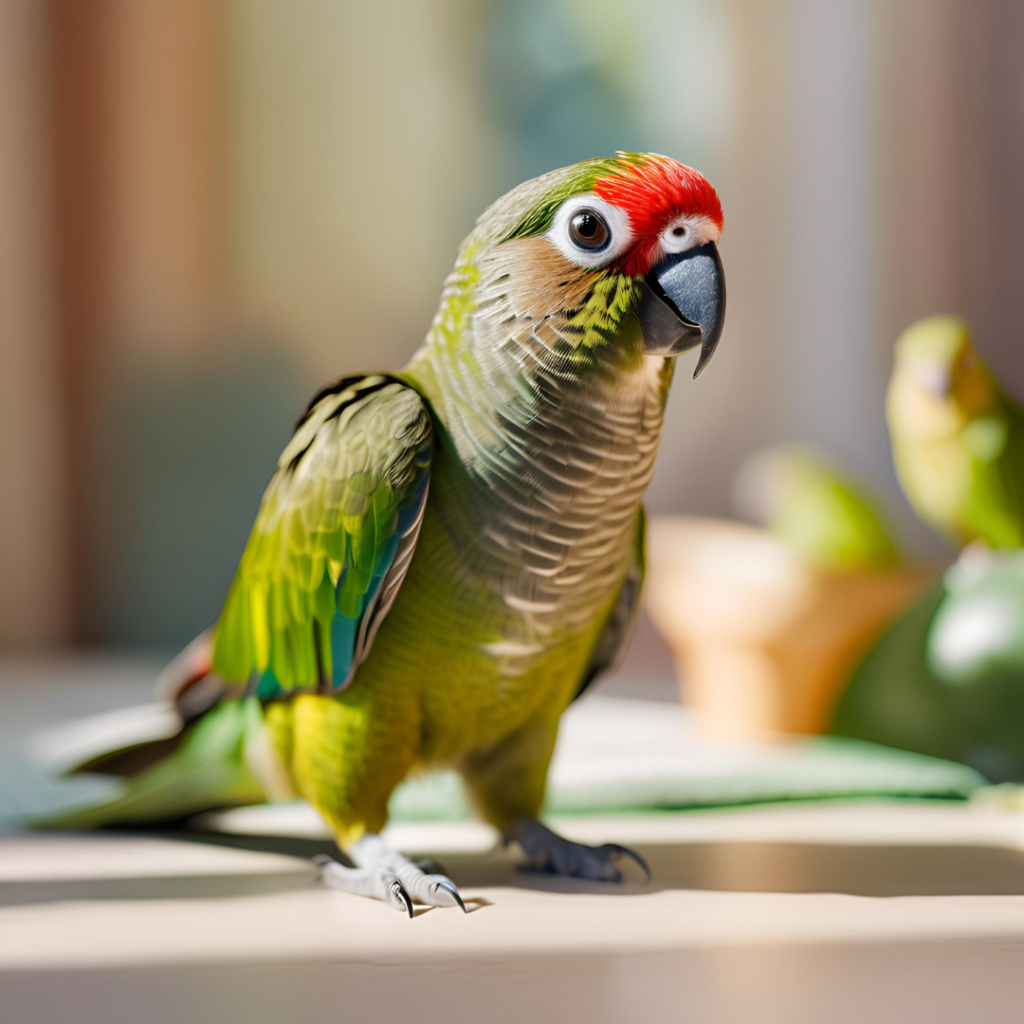
Green-cheeked conures are small, playful parrots known for their charming personalities and striking appearance. With their vibrant plumage, gentle nature, and social behavior, green-cheeked conures are perfect for beginner bird owners who want an active, loving companion.
- Size: Small to medium (10 inches)
- Personality: Playful, affectionate, and social
Why Green-Cheeked Conures are Great Pets for Beginners
1. Affectionate and Social
- Green-cheeked conures are highly social birds that form strong bonds with their owners.
- They enjoy being handled and are known for being affectionate, often cuddling and bonding closely with their human companions.
2. Best Pet Birds for Compact Size
- These small parrots (about 10 inches in length) make them suitable for homes with limited space.
- Their manageable size makes them easy to care for and gives them the perfect balance of being big on personality while small in stature.
3. Best Pet Birds for Playful and Entertaining
- Green-cheeked conures are very playful, enjoying toys, games, and activities that allow them to explore and engage.
- Their playful nature means they can provide hours of entertainment for their owners.
4. Less Noise Than Larger Conures
- Compared to larger conures, green-cheeked conures are relatively quiet. They make soft chirps and whistles, which are much less noisy than the loud calls of larger parrot species.
- This makes them ideal for apartments or homes with noise sensitivity.
5. Best Pet Birds for Easy to Train
- Green-cheeked conures are intelligent and trainable. They can learn tricks, simple commands, and even mimic some sounds or words.
- With consistent positive reinforcement, they can become well-behaved and interactive companions.
6. Best Pet Birds for Beautiful Appearance
- Their vibrant plumage, with shades of green, blue, and red, makes them visually striking and adds color and beauty to any home.
- Their calm and gentle temperament only adds to their appeal.
Essential Green-Cheeked Conure Care Tips
- Diet: Provide a balanced diet of pellets, seeds, and fresh fruits and vegetables. Avoid feeding them too many high-fat foods like sunflower seeds.
- Cage: Choose a spacious cage with multiple perches, toys, and enough room for the bird to move around and climb.
- Exercise and Enrichment: Green-cheeked conures are active and need daily out-of-cage time in a safe environment to exercise and play.
- Social Interaction: These birds are highly social, so make sure to spend quality time interacting with them daily to keep them happy.
- Health: Regularly clean their cage, provide fresh food and water, and take them for annual vet checkups to maintain good health.
Green-cheeked conures are an excellent choice for beginners seeking a small, affectionate, and easy-to-care-for bird. With their playful nature, quiet chirps, and beautiful plumage, they can bring joy and companionship to any home. With the right care, training, and attention, green-cheeked conures can thrive and become a loving member of your family for many years.
9. Dove Can Be A Best Pet Birds
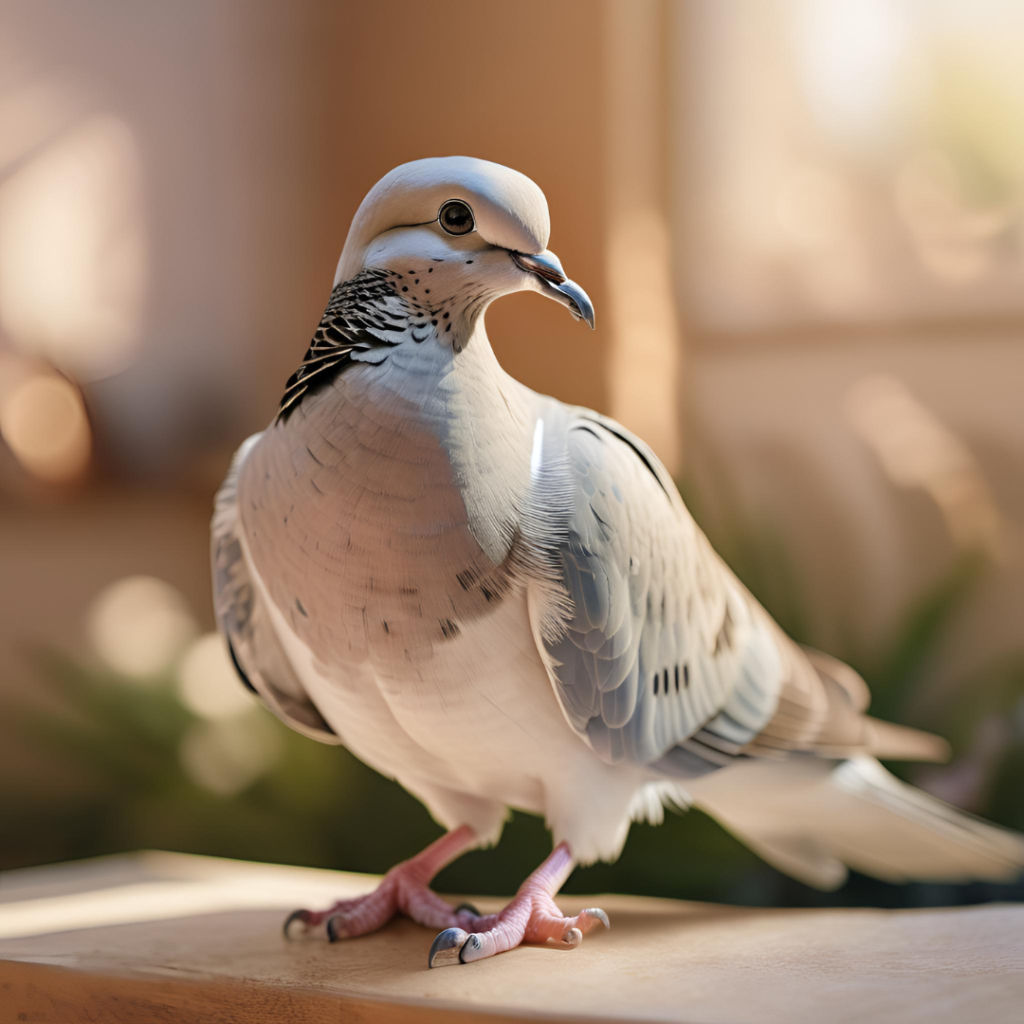
Doves are gentle, peaceful, and easy-to-care-for birds that make wonderful pets, especially for beginners. Their calm demeanor and beautiful cooing sounds make them a soothing presence in any home. Doves are also low-maintenance, which is ideal for those new to bird ownership.
- Size: Medium (12 inches)
- Personality: Peaceful, gentle, and easygoing
Why Doves Is A Best Pet Birds for Beginners
1. Best Pet Birds for Gentle and Calm
- Doves are known for their serene and peaceful nature. They are not aggressive and generally get along well with their owners and other pets.
- Their calm behavior makes them excellent companions for families, elderly individuals, or anyone looking for a low-stress pet.
2. Best Pet Birds for Low Maintenance
- Doves are relatively easy to care for, requiring only basic needs such as a clean cage, fresh water, and a balanced diet.
- Their diet mainly consists of seeds, grains, and fresh greens, and they don’t require the same level of attention as more high-maintenance birds like parrots.
3. Best Pet Birds for Quiet and Soothing
- Unlike some other birds, doves are not loud. Their soft, cooing sound is peaceful and soothing, making them suitable for apartment living or environments where noise might be an issue.
- Their gentle calls are pleasant and can create a calming atmosphere in the home.
4. Best Pet Birds for Sociable and Bond with Owners
- While doves are more independent than some other bird species, they can still form strong bonds with their human caretakers.
- They enjoy being in the presence of their owners and can be trained to respond to their name or come when called with consistent positive reinforcement.
5. Great for Beginners
- Doves are an ideal pet for first-time bird owners. They are easy to handle, require minimal training, and are relatively low-maintenance.
- Their calm and affectionate nature allows for a great beginner experience without the challenges that come with more demanding species.
6. Best Pet Birds for Beautiful and Elegant
- Doves are visually striking with their soft, elegant feathers and graceful appearance.
- They are particularly admired for their gentle and beautiful presence, adding a touch of peace and beauty to any environment.
Essential Dove Care Tips
- Diet: Feed a variety of seeds, grains, and fresh greens. Commercial dove food is available, but you can also supplement their diet with safe vegetables and fruits.
- Cage: Provide a spacious cage with room for flight, as doves enjoy a bit of exercise. Include perches, nesting areas, and a few toys for enrichment.
- Exercise and Enrichment: Allow doves to fly in a safe, enclosed space for exercise. You can also provide small toys like bells or mirrors to keep them entertained.
- Social Interaction: Spend time with your dove daily, as they are social creatures. They enjoy human companionship but also appreciate quiet time in a peaceful environment.
- Health: Regularly clean their cage and provide fresh water. Schedule periodic vet visits to monitor their health and ensure they remain happy and healthy.
Doves are peaceful, easygoing pet birds that make excellent pets for beginners. Their quiet nature, affectionate behavior, and low-maintenance care needs make them a perfect choice for anyone new to bird ownership. With the right care, doves can live long, happy lives, providing soothing companionship and adding elegance to any home.
10. Ring-Necked Dove Can Be A Best Pet Birds

The ring-necked dove, also known as the Streptopelia risoria, is a calm, gentle pet birds known for its beautiful cooing sounds and graceful presence. These doves are excellent pets for beginners due to their easygoing nature, low-maintenance care, and affectionate tendencies.
- Size: Medium (10–12 inches)
- Personality: Gentle, friendly, and low-maintenance
Why Ring-Necked Doves Are Great Pets for Beginners
1. Best Pet Birds For Calm and Friendly Disposition
- Ring-necked doves are known for their peaceful and gentle temperament. They are easy to handle and typically get along well with other pets and family members.
- Their calm nature makes them great companions for both children and adults who prefer a more serene pet.
2. Best Pet Birds For Quiet and Soothing Sounds
- Unlike many other pet birds, ring-necked doves produce soft cooing sounds that are soothing and calming.
- Their gentle calls create a peaceful atmosphere, making them ideal for people living in apartments or for those who prefer quiet pets.
3. Low Maintenance
- Ring-necked doves are relatively low-maintenance compared to more high-maintenance birds like parrots or cockatoos.
- Their diet mainly consists of seeds, grains, and fresh greens, and they don’t require frequent grooming or complex care routines.
4. Social and Affectionate
- Although independent at times, ring-necked doves enjoy the company of their owners and can form bonds with them.
- They may not be as hands-on as parrots, but they appreciate interaction and can be quite affectionate when given attention.
5. Best Pet Birds For Great for Small Spaces
- Their relatively small size and calm nature make ring-necked doves suitable for apartment living or homes with limited space.
- They don’t require large cages, but they do need space to fly and stretch their wings, making them suitable for most living environments as long as they have room to move.
6. Best Pet Birds For Simple Care Requirements
- Ring-necked doves are relatively easy to care for and don’t require as much attention or time as other pet birds.
- Their daily needs include fresh water, a clean cage, and a balanced diet, making them an ideal choice for beginners who may not have extensive bird-keeping experience.
Essential Ring-Necked Dove Care Tips
- Diet: Offer a varied diet of dove-specific seeds, grains, and fresh vegetables. Occasional fruits like berries or apple slices can be given as treats.
- Cage: Choose a spacious cage with enough room for the dove to fly, perch, and stretch its wings. Include several perches and some toys for enrichment, though they don’t need too many to stay happy.
- Exercise and Enrichment: Provide time outside the cage for the dove to fly and explore in a safe, enclosed space. While they are not as active as some other bird species, they still need daily exercise.
- Social Interaction: Spend time interacting with your dove daily to build a bond. Though they are less demanding than parrots, regular companionship is important for their well-being.
- Health and Hygiene: Keep the cage clean and ensure that fresh water is always available. Regular vet checkups will help maintain the dove’s health, as well as monitor for signs of illness.
Ring-necked doves are an ideal choice for beginners due to their peaceful, calm nature and simple care requirements. Their gentle cooing and affectionate disposition make them a lovely addition to any home. With the right care and attention, ring-necked doves can be long-lasting, low-maintenance companions that bring peace and beauty to your life.
Choosing the right bird is essential for first-time owners, as it sets the foundation for a happy relationship. Budgies, cockatiels, and canaries are particularly popular for beginners due to their gentle nature and minimal care requirements. Whatever pet birds you choose, remember to provide them with proper care, a spacious cage, a healthy diet, and, of course, lots of love and attention.
